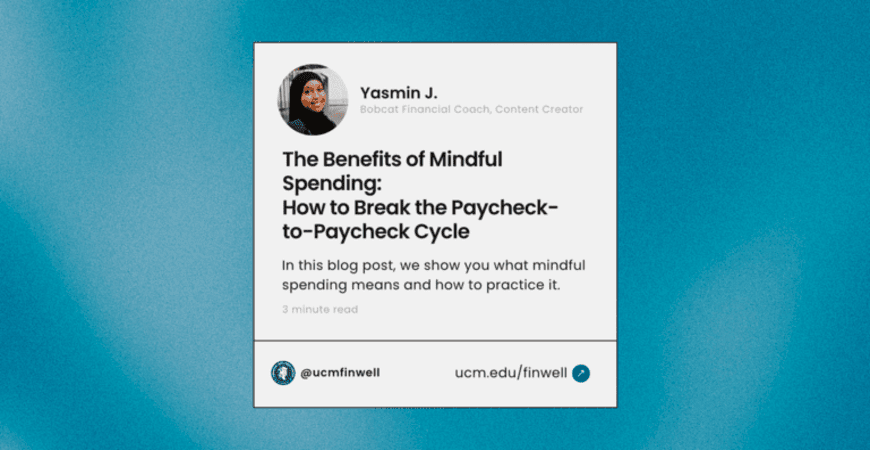
Living paycheck to paycheck is a common struggle for many people. It can be difficult to make ends meet and save for the future when you're constantly worried about how you're going to pay your bills. But what if there was a way to break the paycheck-to-paycheck cycle?
One solution is to practice mindful spending.
Mindful spending is a way of being present and intentional with your money. Instead of mindlessly spending without a plan or budget, you take the time to consider your values and goals, and make spending decisions that align with them.
One of the biggest benefits of mindful spending is that it helps you become more aware of your spending habits. By paying attention to where your money is going, you can identify areas where you may be overspending and make adjustments. For example, you may realize that you're spending a lot on eating out, and decide to make more meals at home to save money.
Another benefit of mindful spending is that it can help reduce stress and anxiety. When you're living paycheck to paycheck, it's easy to feel like you're always one step behind. Money is one of the biggest sources of stress, and it can be hard to relax or enjoy life when you're constantly worried about bills and expenses. By creating a plan and budget, you can have more control over your finances and feel more secure.
Mindful spending also helps you align your spending with your values and goals. When you're intentional about your spending, you're more likely to make choices that are in line with what's most important to you. For example, if you value traveling, you might decide to prioritize saving for a vacation over buying a new car.
To start practicing mindful spending, try the following:
-
Create a budget: This will help you understand where your money is going and identify areas where you can cut back.
-
Track your spending: Use a spending tracker app or write down every purchase you make. This will help you become more aware of your spending habits.
-
Prioritize your spending: Decide what's most important to you and allocate your money accordingly.
-
Avoid impulse buying: Instead of buying something on a whim, wait 24 hours before making a decision.
-
Reflect on your spending: Take some time to reflect on your spending habits and consider whether they align with your values and goals.
Another good strategy is to set financial goals, both short and long term. When you have a clear sense of what you're working towards, it's easier to make decisions that align with your goals. For example, if you're trying to save for a down payment on a house, it's easier to say no to impulse purchases and unnecessary expenses.
Finally, when you're mindful about your spending, you're more likely to be mindful about your saving. Mindful saving means saving for specific goals, like retirement or emergency fund, rather than just saving for the sake of saving. This can help you feel more motivated and confident about your financial future.
In summary, mindful spending is a powerful tool for breaking the paycheck-to-paycheck cycle. By becoming more aware of your spending habits, reducing stress and anxiety, and aligning your spending with your values and goals, you can take control of your finances and build a more secure and fulfilling future.
About the Author:
 Yasmin Jama
Yasmin Jama
Bobcat Financial Coach, Content Creator
Yasmin is a fourth-year Cognitive Science major at the University of California, Merced. Read more about her here!








